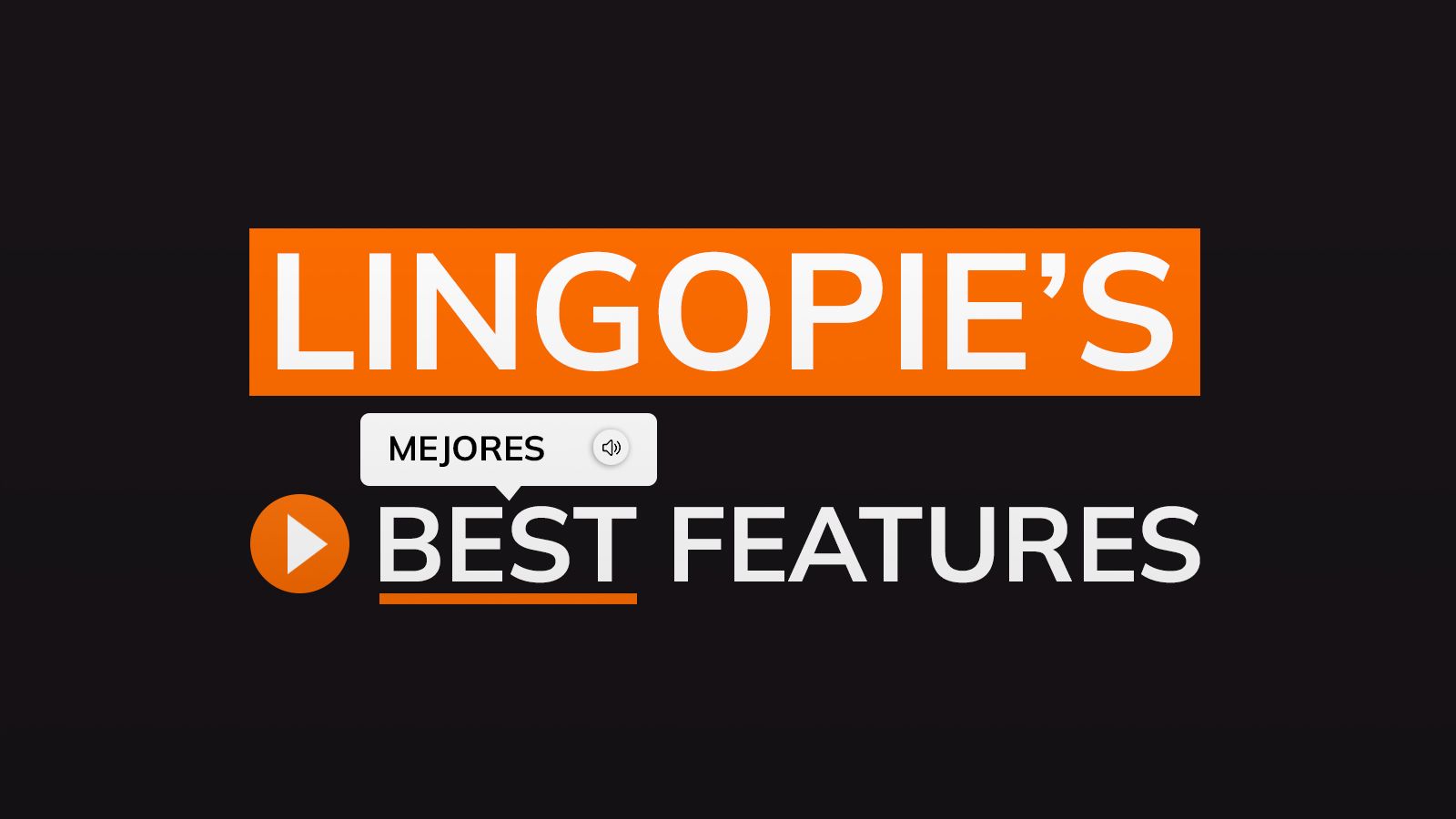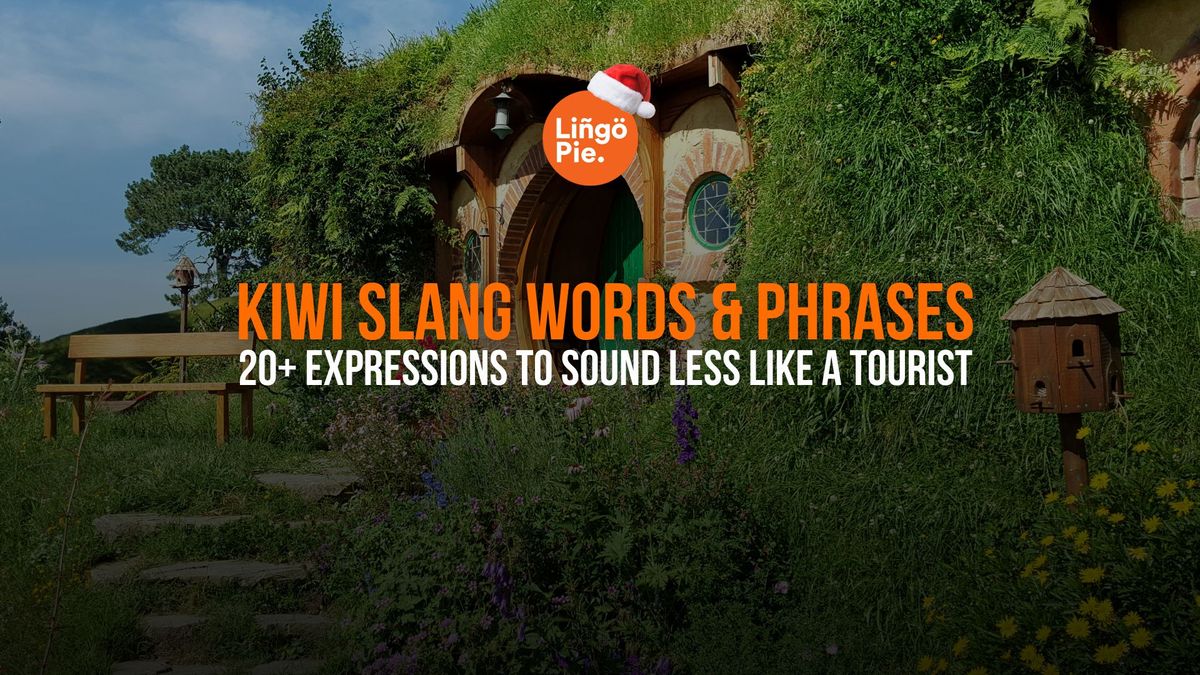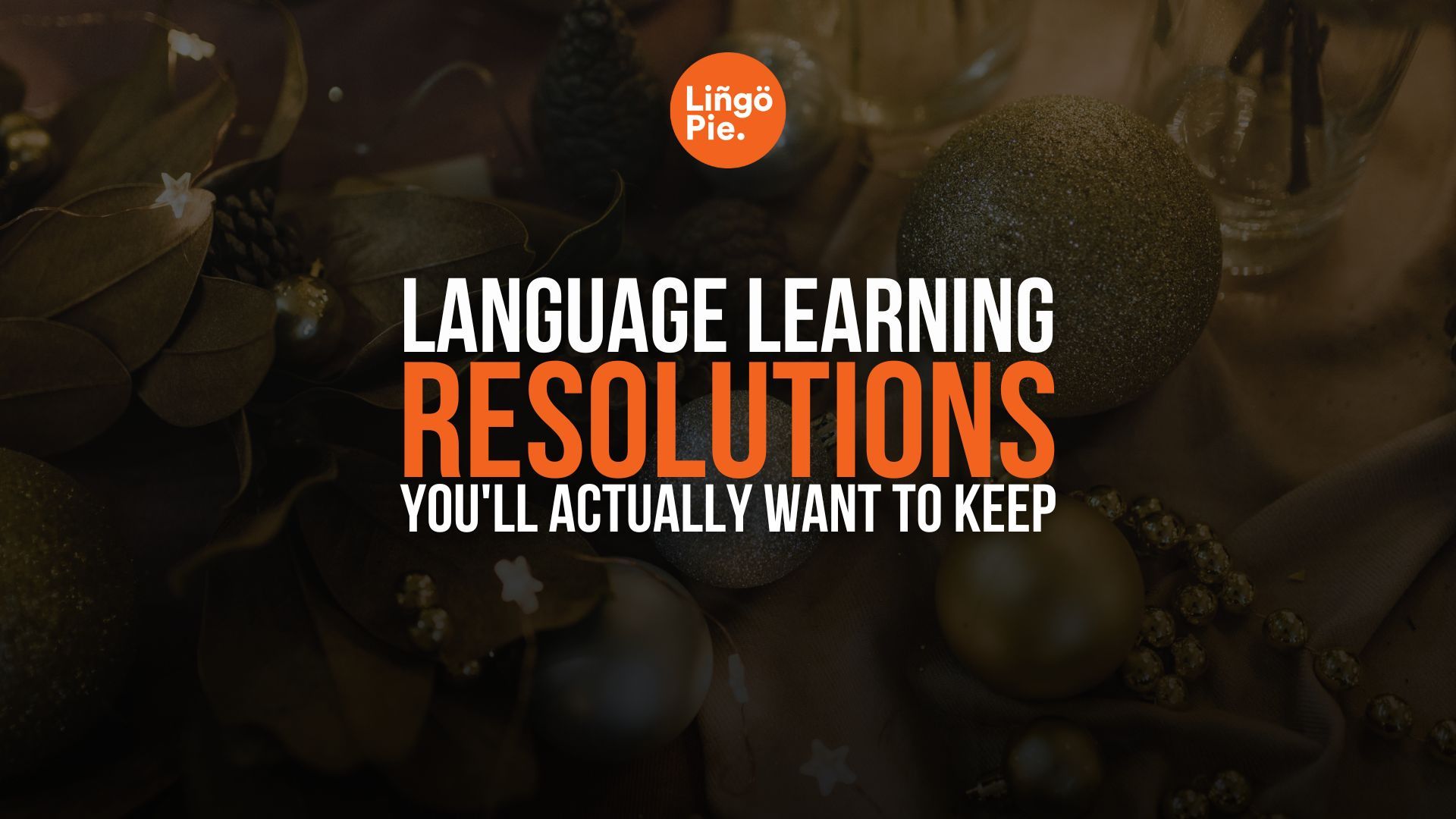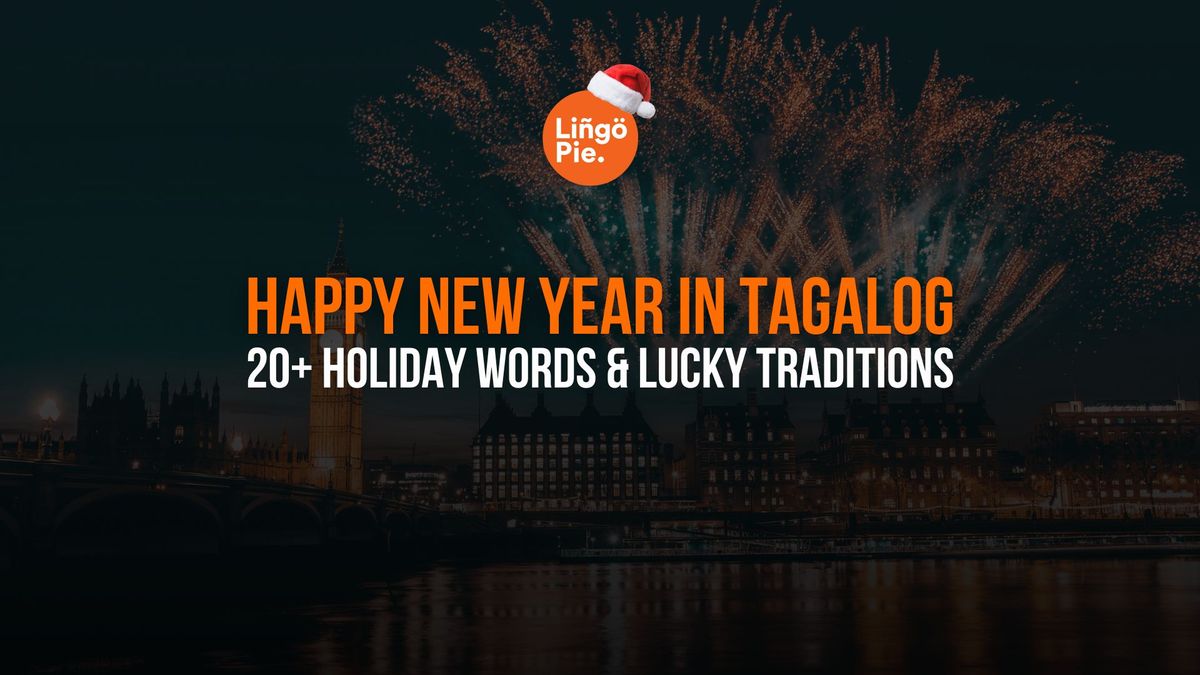You know those end-of-the-world movies where everything's going wrong? Zombies in New York, aliens in London, and somehow there's always that one character who pipes up, "We should head to New Zealand - it's safe there!" And honestly, they're not wrong. With its tucked-away location at the bottom of the world, surrounded by vast oceans, it's probably the smartest escape plan in any apocalyptic scenario.
While New Zealand might be the perfect hideout from flesh-eating zombies (thanks to its isolation and stunning landscapes), there's one challenge those disaster movies never warn you about: trying to keep up with local Kiwi lingo! So stick around because, in this post, I'll share with you the most popular New Zealand slang that'll have you chatting like a local.
- 26+ Easy Guatemalan Slang Every Expat Should Know
- 25 Dominican Slang Terms You Gotta Know
- 24+ Easy Cuban Slang Words That Only Locals Understand

New Zealand Slang Words
Kia Ora
Kia Ora is probably the first New Zealand slang you'll hear most of the time. It's a warm Māori greeting that literally means "be well" or "be healthy," but Kiwis use it pretty much like "hello" or "hi."
Jandals
Jandals are flip-flops. Simple as that. These rubber sandals with a strap between your toes are one of the most common types of footwear you'll see in New Zealand, and locals use this term instead of flip-flops, thongs, or sandals.
Bach
A bach (pronounced 'batch') is a holiday home in New Zealand. While South Islanders call it a 'crib,' it's the same thing - a simple, often modest vacation house where Kiwis escape for their summer breaks or weekend getaways.

Togs
Togs are swimwear - any kind of swimming outfit you throw on for a dip in the ocean or pool. While the rest of the world might say swimsuit, swimming costume, or bathers, Kiwis keep it short and sweet with 'togs.' You'll often hear locals say "Don't forget your togs!" before heading to the beach.
Chocka
Chocka means completely full or packed. If a Kiwi tells you their stomach is "chocka," they're saying they couldn't eat another bite.
Scroggin
Scroggin is trail mix - that tasty blend of nuts, dried fruit, and chocolate that Kiwis pack for hiking trips. It's the essential snack for any outdoor adventure in New Zealand.
Munted
Munted has two meanings: it either means something's totally broken beyond repair, or someone's extremely drunk. Like if you hear "That phone is munted," it's toast. Or if someone's "got munted last night," they had way too many drinks.
Beaut
Beaut (pronounced "byoot") simply means great or excellent. When a Kiwi says "That's a beaut day!" they're telling you it's a beautiful day.

Stoked
Stoked means really happy or excited about something. If someone tells you they're "stoked about the weekend," they're super pumped and looking forward to it.
Dunny
Dunny is a toilet. Yep, when a Kiwi tells you they need to find the dunny, they're looking for the bathroom.
Tramping
Tramping is what the rest of the world calls hiking. Any time you're hitting those gorgeous New Zealand trails with a backpack, you're tramping.
Chilly Bin
Chilly Bin is a cooler or ice box. It's where Kiwis keep their drinks cold at the beach or during a barbecue.

Snag
Snag is simply a sausage. You'll hear this one a lot at backyard barbies (that's barbecues in Kiwi-speak).
Far Out
Far Out is an expression of surprise or amazement. Think of it as the Kiwi version of "wow" or "holy cow!"
Tu meke
Tu Meke (pronounced "too-meh-keh") comes from Māori and means "too much" in a good way - like "awesome" or "fantastic."
Cark it
Cark it means to die or break down completely. If your car "carks it," you're probably calling a tow truck.

New Zealand Slang Phrases
Had a big one on the turps
"Had a big one on the turps" means someone had a big night of drinking. When a Kiwi tells you this, they're probably nursing a hangover!
He’s a muppet
"He's a muppet" is the Kiwi way of calling someone an idiot or fool. It's like calling someone a goofball, but with that special New Zealand zing.
That’s grotty
"That's grotty" simply means something's gross or disgusting. Short, sweet, and perfectly descriptive when you need to express your disgust!
You’re such an egg
"You're such an egg" is a playful way to call someone a goof or silly person. It's usually said with affection, like when your friend does something ridiculous.
Rattle your dags
"Rattle your dags" means hurry up or get moving. Next time someone's taking forever, hit them with this classic Kiwi phrase that literally refers to sheep shaking their wool clean!
New Zealand English Vs American Englisgh
Ever wonder why Kiwis and Americans sometimes feel like they're speaking different languages, even though it's technically English? While both countries share the same linguistic roots, New Zealand English has evolved into its own unique flavor, shaped by a blend of British colonial influence, Māori culture, and that distinctly laid-back Pacific spirit.
| American English | New Zealand English | Why It's Different |
|---|---|---|
| Cooler | Chilly bin | Shows British influence ("bin" for container) |
| Hiking | Tramping | From British colonial outdoor traditions |
| Vacation home | Bach/Crib | Māori and local cultural development |
| Gas | Petrol | British English inheritance |
| Grocery store | Dairy | Unique to NZ's corner store culture |
| Swimsuit | Togs | Old British term that stuck around |
In New Zealand English, you've got words borrowed from Māori (like "Kia Ora") mixing it up with phrases that British settlers brought over (like "togs"), plus some totally unique terms that sprouted from local culture (like calling a corner store a "dairy").
Ready To Go Beyond Kiwi-Speak?
So there you have it - your crash course in speaking like a true Kiwi! But hey, why stop at just mastering New Zealand's quirky version of English? If you're the kind of person who gets a kick out of learning how different cultures put their own spin on language, then you might be ready for an even bigger adventure.

Whether you fancy mastering Japanese to understand your favorite anime without subtitles, diving into Portuguese to chat with locals at that Rio beach you've been dreaming about, or learning French to order your croissants like a true Parisian, Lingopie's got you covered. Try it FREE for 7 days to see why it's highly recommended!
FAQ: Popular Kiwi Slang Explained
What does "choice" mean in New Zealand slang?
"Choice" is the ultimate Kiwi stamp of approval - it means something is really good or excellent. When a New Zealander says "That was choice, bro!" they're telling you they're seriously impressed, whether it's about an amazing meal, a perfect wave for surfing, or just a generally awesome situation.
What's the meaning of "hard yakka"?
Hard yakka means tough or difficult work. When Kiwis tell you they've been doing hard yakka all day, they're letting you know they've been putting in some serious physical effort - think construction work, gardening, or any kind of manual labor that leaves you ready for a good night's sleep.
What does "sweet as" mean?
"Sweet as" is basically the Swiss Army knife of Kiwi expressions. It means everything's good, fine, or okay - no worries at all. The "as" doesn't actually compare it to anything; it's just there to give the word extra oomph, making it a super versatile way to say you're all good with whatever's happening.
When Kiwis say "pack a sad," what are they talking about?
"Pack a sad" is what happens when someone gets grumpy or throws a tantrum. If your mate's "packing a sad," they're having a bit of a sulk or getting unnecessarily moody about something - kind of like taking your emotional baggage and packing it up for a little trip to Grumpytown.
What's a "dag" in New Zealand slang?
In Kiwi speak, being a "dag" means you're a bit of a character or a funny person, but in an endearing way. It's like being the class clown, but with a distinctly New Zealand twist. When someone calls you a dag, take it as a compliment - they're basically saying you're entertaining and fun to be around.
What does "She'll be right" mean in Kiwi slang?
"She'll be right" is the ultimate Kiwi way of saying "don't worry about it" or "everything will be fine." It's that classic laid-back New Zealand attitude wrapped up in three simple words, showing how Kiwis take life's little hiccups in stride. Whether your car's making a weird noise or your plans just fell through, this phrase is like a verbal pat on the back saying everything will work out in the end.
What does "on your trot" mean in New Zealand?
"On your trot" means you're leaving or heading off somewhere. It's one of those charming Kiwi expressions that paints a picture of someone happily making their way home or to their next destination. When someone says "I'm on my trot," they're basically telling you they're about to head out or they're already on their way - simple as that!








![Foreigner's Guide To Hangeul Day In Korea [2025]](/blog/content/images/size/w300/2024/10/Apprendre-Des-Gros-Mots-Faciles-En-Allemand-2.png)

